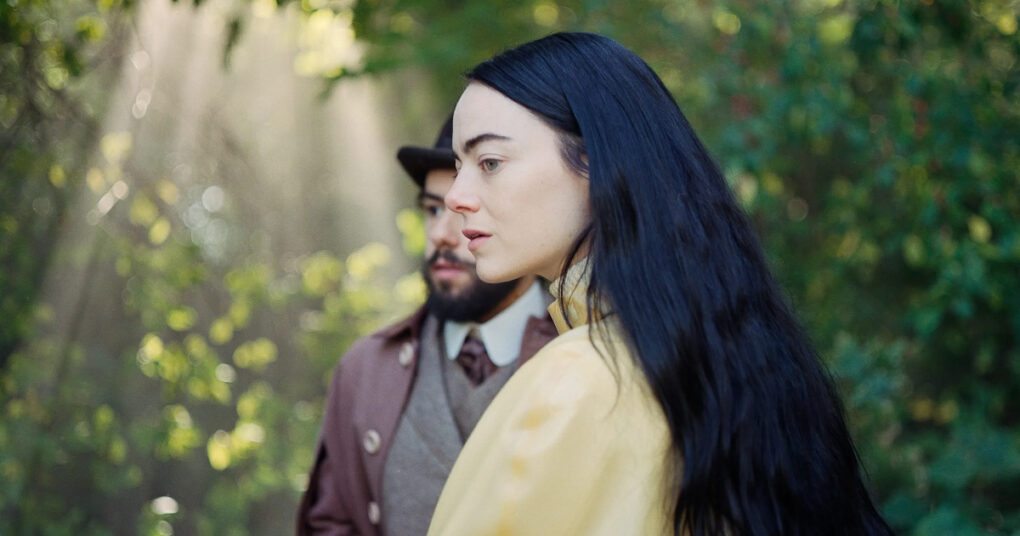The highly idiosyncratic Yorgos Lanthimos revisits the myth of Frankenstein through the story of Bella, a strange, childish and unconventional Victorian girl who lives under the tutelage of Dr Godwin Baxter. Baxter is a renowned but extravagant, monstrous-looking scientist who lives in a sumptuous Victorian mansion in London, complete with a laboratory in the basement, where he carries out unorthodox experiments on animals or dissects corpses. The girl has two suitors: Max McCandless, a student of Baxter, and the recently arrived Duncan Wedderburn, a scoundrel set on elopement.
On this occasion, the Greek director adapts the novel of the same name published in 1992 by Alasdair Gray, with screenplay by Tony McNamara (who worked with him on his last feature film The Favorite). Lanthimos’ very personal aesthetic is to the fore, deployed in the film’s suggestive imagery, colorful and ornate production and costume design, as well as photography that focusses on texture and tones. The predominance of the bizarre and the grotesque gives the film a Gothic feel. Fans of this director, or just anyone looking for striking visuals, will be happy, as will be lovers of vitriol, sarcasm and the bizarre and morbid. However, those looking for something deeper, such as character development or a slightly more humane message, won’t be so happy. At the outset the film seems to promise a traditional portrayal of the anti-social character who goes on to adapt to life in society with all its ups and downs, along the lines of Hugh Hudson’s 1984 film Greystoke: The Legend of Tarzan, Lord of the Apes, or François Truffaut’s 1970 classic The Wild Child. Unfortunately however, the story quickly stagnates in its focus on repeated excesses, and on the central character’s obsession with sex.
A predictably fashionable feminist message has been added, echoing demands for women’s empowerment as well as rights over her own body. Emma Stone, who previously worked with Yorgos Lanthimos on the The Favorite, is now receiving critical acclaim and has been nominated for some important awards. Her monstrous character undergoes an extensive arc of evolution, which she strives to reflect with subtlety, but fails to be completely convincing. Willem Dafoe, is expressive despite all the makeup, (his character’s face looks as if it had been trepanated and then hastily reconstructed), and the all-rounder Mark Ruffalo (Wedderburn), and the veteran Hanna Schygulla (who plays a widow) both do very well.
About the Author: Juan Luis Sánchez
This film review originally appeared in Spanish on www.decine21.com and is reprinted with permission.

